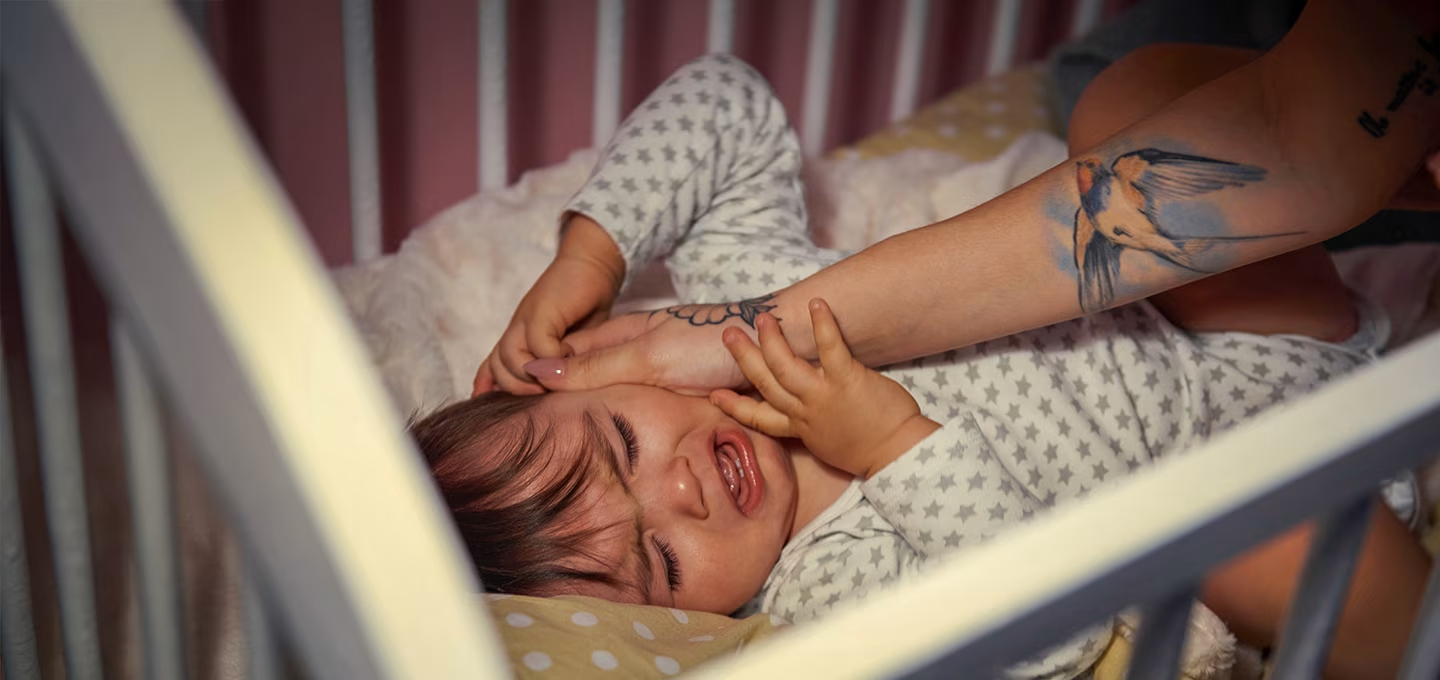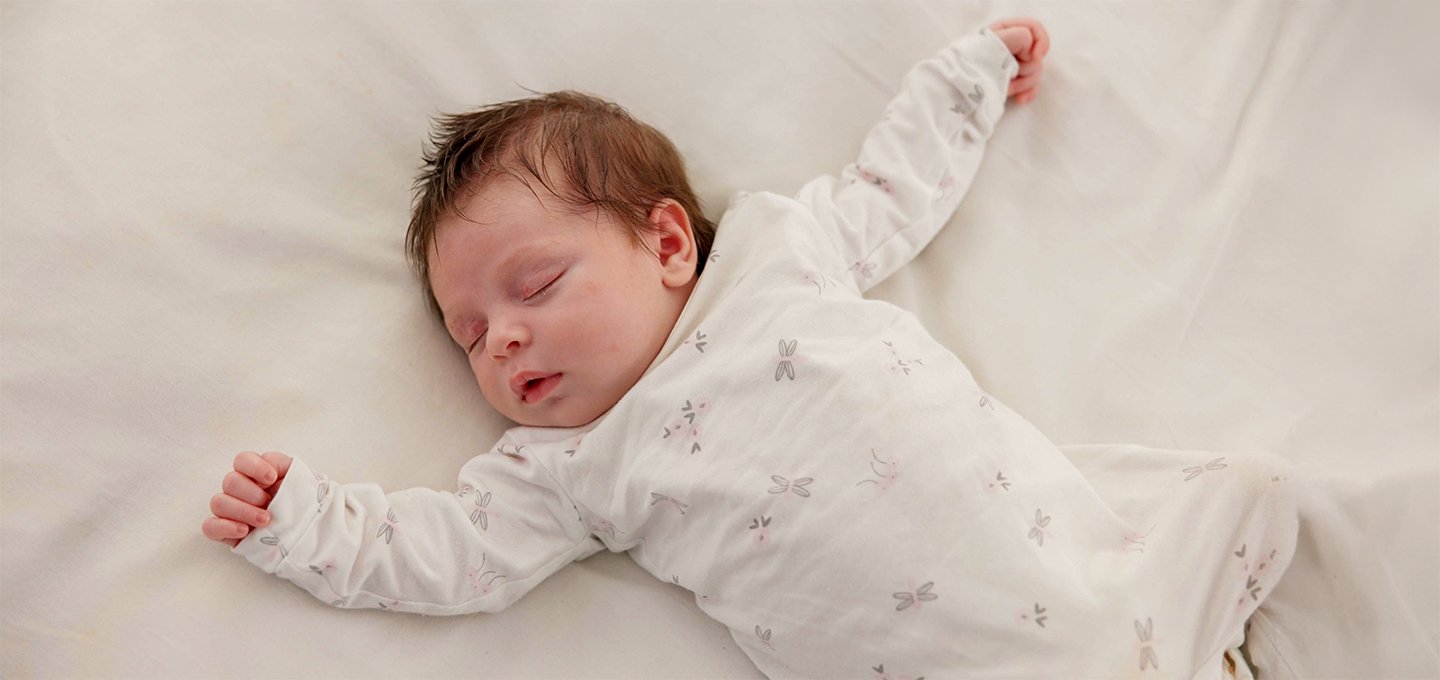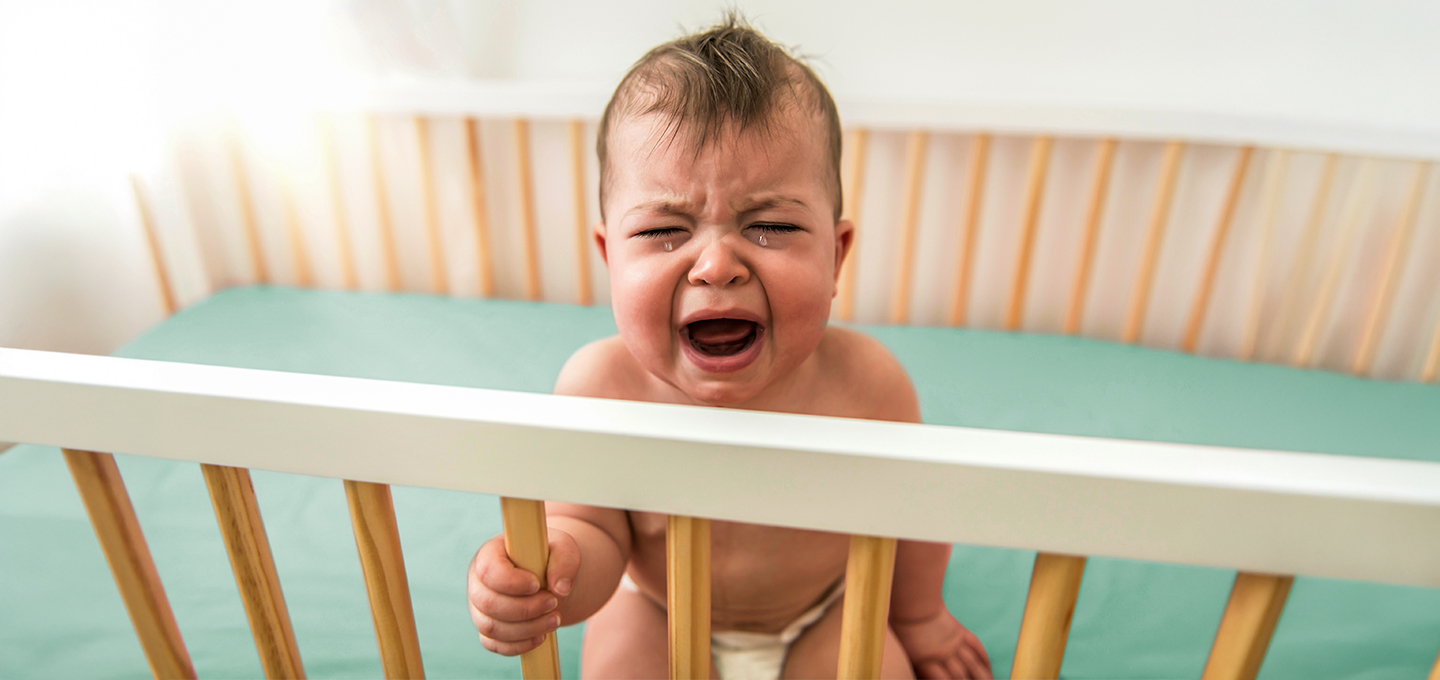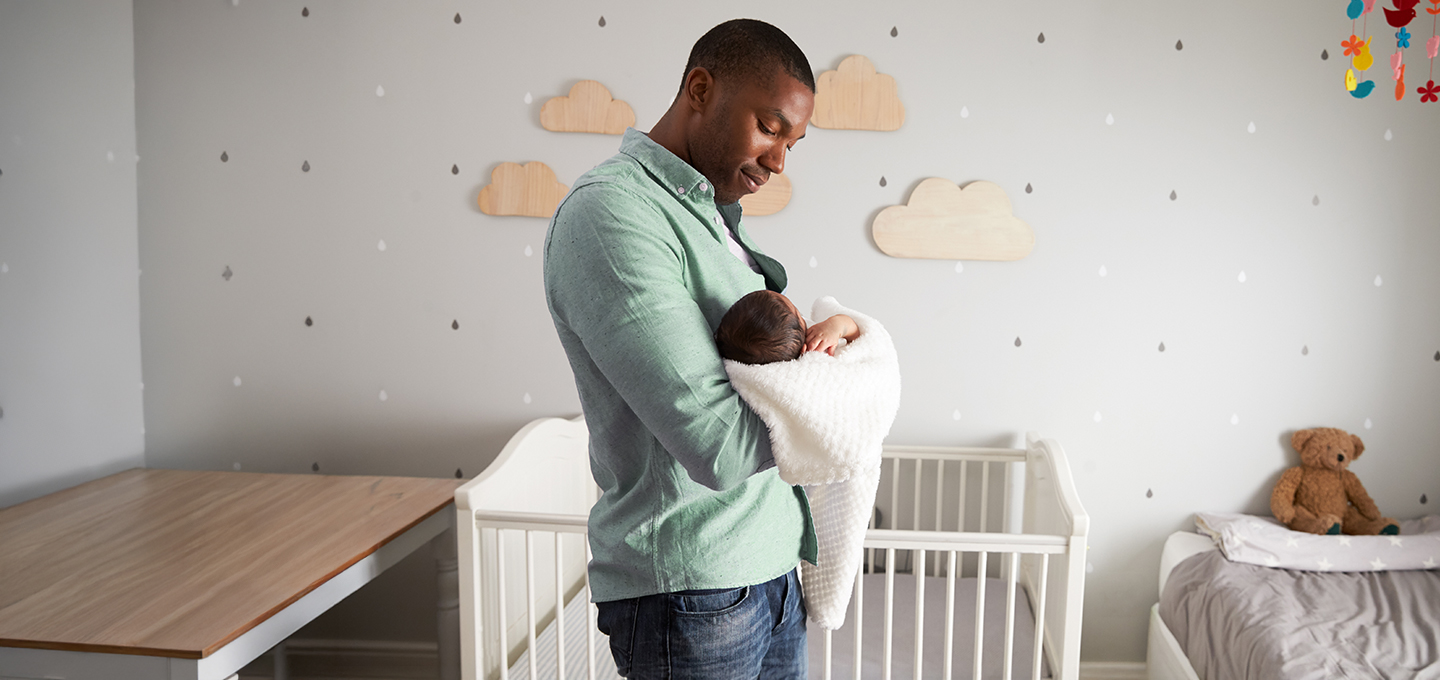
Can Babies Have Night Terrors?


You may have heard about night terrors in children, but have you ever wondered if it’s possible for a baby or newborn to have a night terror?
If your newborn or baby wakes up at night crying, there could be many causes. Read on for more about if it’s common for babies to have night terrors, what causes night terrors, how to prevent night terrors in baby, and what to do if your baby has a night terror.
What are Night Terrors in Babies?
A night terror is when a baby screams, cries, or flails while still sleeping and is inconsolable. A baby may seem awake, but during a night terror they are only semiconscious and don’t know what’s going on. Babies won’t remember a night terror.
Other symptoms of a night terror in babies include shaking or shivering, fast beating heart, sweating, and wide or scared glazed eyes. Symptoms of a night terror may seem similar to a seizure.
Night terrors are scarier for those witnessing it than those having one. Your baby is not in pain if they are having a night terror and unlike a nightmare, you don’t remember a night terror.
Can a Baby Have a Night Terror?
It’s rare for a baby to have a night terror, but it is possible.
Night terrors are not as common as nightmares––only 3-6% of kids ever have a night terror and usually they won’t start until between the ages of 3 and 7. Even though it's not common for a baby to have a night terror, it is possible for a baby as young as 18-months-old to have a night terror. It’s even rarer for a baby younger than 18-months-old to have a night terror but it is possible. It’s unknown if the brains of younger babies are developed enough to experience them.
In younger babies if they wake up crying they most likely are hungry and are not having a night terror.
What Causes Night Terrors in Babies?
The causes of night terrors in babies are unclear. There are, however, different schools of thought to what may be the reason babies have night terrors.
One theory is that night terrors happen when a baby transitions between sleep cycles. Since night terrors happen early in the night, usually within sleep hours of falling asleep, there may be a connection between night terrors happening when you transition from non-REM sleep, the lighter stage of sleep, to a deeper stage of sleep, REM sleep. Baby sleep cycles also change drastically within the beginning of life, which also support this theory.
Another thought is that night terrors happen as part of the development of a baby’s central nervous system.
There are also situations that may increase the chances that your baby has a night terror. Things that could increase the chances of a night terror includes:
Tip
If you’re concerned your baby’s overtiredness may lead to a night terror, use the Smart Sleep Coach by Pampers app to reset their sleep schedule and overcome overtiredness––starting tonight.
How to Prevent Night Terrors in Babies
Unfortunately, there is no one way to prevent night terrors in your baby, but there are ways to help reduce the risk.
Whether your baby has night terrors or nightmares, night lights can also reduce any fear they may have around bedtime or if they wake up in the middle of the night.
What to Do if Your Baby has a Night Terror
Many parents ask, “Should I wake my baby during a night terror?” and the answer is no. Your child is in a semi-conscious state during a night terror and won’t remember the night terror the next day. Therefore, it’s best not to wake them––they’ll be very disoriented. Instead, you should:
When to worry about night terrors
If night terrors are frequent or severely disruptive, speak to your pediatrician for further advice and support.
There are very rare cases where a seizure during sleep resembles symptoms of a night terror. If you think your baby may be experiencing a seizure during a night terror, speak to your pediatrician about potential underlying causes.
FAQS AT A GLANCE
There are several signs that your baby is having night terrors. Signs of a night terror include waking within the first few hours of sleep with intense fear or panic with wide-open eyes and rapid breathing and being inconsolable. During these episodes, your baby might scream, cry loudly, or exhibit physical movements like thrashing or flailing their arms. Unlike nightmares, which occur later in the night during REM sleep and are often remembered, night terrors happen during deep non-REM sleep, and your baby will not recall the episode the next morning.
The Bottom Line
Night terrors in babies are scary––but not dangerous. While you want to do everything in your power to prevent night terrors in your baby, there’s no surefire way to do so. However, by sticking with a consistent routine, preventing overtiredness, and creating a soothing environment, you can reduce the risk of night terrors and ensure a cozy happy night of sleep.
Like with anything baby sleep, ensuring their safety is key. If you have any concerns about night terrors in your baby, speak to your pediatrician.
- Journal of Developmental and Behavioral Pediatrics, “Inconsolable night-time awakening: beyond night terrors”
- American Family Physician, “Common Sleep Disorders in Children”
- Journal of Pediatric Nursing, “Night Terrors: Strategies for Families Coping”




